
-
Find the right food for your petTake this quiz to see which food may be the best for your furry friend.Find the right food for your petTake this quiz to see which food may be the best for your furry friend.Featured products
 Perfect Digestion Large Breed Puppy Food
Perfect Digestion Large Breed Puppy FoodPrecisely balanced nutrition with Hill's ActivBiome+ prebiotic blend actively contributes to supporting digestive health and overall well-being to help your pet feel their best
Shop Now Small & Mini Mature Adult 7+ Dog Food
Small & Mini Mature Adult 7+ Dog FoodHill's Science Plan Small & Mini Breed Mature Adult Dog Food with Chicken is a complete pet food, specially formulated with ActivBiome+ Multi-Benefit Technology.
Tailored nutrition to support graceful ageing in small dogs. Specially made with a synergistic blend of nutrients for energy & vigor.Shop Now Perfect Digestion Small & Mini Adult Dog Food
Perfect Digestion Small & Mini Adult Dog FoodHill's Science Plan Perfect Digestion Small & Mini Breed Adult Dog Food with Chicken & Brown Rice supports ultimate digestive well-being & a healthy microbiome.
Shop NowFeatured products Hairball & Perfect Coat Adult Cat Food
Hairball & Perfect Coat Adult Cat FoodHill's Science Plan HAIRBALL & PERFECT COAT Adult cat food with Chicken is specially formulated to effectively help avoid hairball formation in adult cats while promoting a beautiful coat. Thanks to its mix of essential Omega-6 fatty acids, this food benefits the cat's skin and fur keeping them healthy and shiny. Our Advanced Fibre Technology helps reduce hairballs by naturally promoting their passage through the gut. This food is formulated with high-quality protein for a perfectly balanced, great-tasting recipe.
Shop Now Hypoallergenic Dry Cat Food
Hypoallergenic Dry Cat FoodHILL'S SCIENCE PLAN Hypoallergenic Adult cat food with egg & insect protein is a complete pet food for adult cat 1–6 years old. It's formulated for cats with delicate skin and stomach, with limited high quality novel protein sources & no grain.
Shop Now Kitten Food
Kitten FoodHill's Science Plan Kitten Wet Cat Food Premium Chunks in Sauce with Chicken is a complete pet food for kittens and for pregnant or nursing cats
Shop Now -
Dog
- Dog Tips & Articles
-
Health Category
- Weight
- Food & Environmental Sensitivities
- Urinary
- Digestive
- Joint
- Kidney
-
Life Stage
- Puppy Nutrition
- Adult Nutrition
- Senior Nutrition
Cat- Cat Tips & Articles
-
Health Category
- Weight
- Skin & Food Sensitivities
- Urinary
- Digestive
- Kidney
-
Life Stage
- Kitten Nutrition
- Adult Nutrition
Featured articles Understanding Your Pet's Microbiome
Understanding Your Pet's MicrobiomeLearn what a pet's microbiome is, how it contributes to your pet's gut & overall health, and why nutrition is important in maintaining healthy microbiomes.
Read More Pet Food Storage Tips
Pet Food Storage TipsWhere you store your cat and dog food can make a big difference in the quality and freshness once it is opened. Here are some common questions and recommendations for optimal storage for all of Hill’s dry and canned cat and dog food.
Read More The Right Diet For Your Pet
The Right Diet For Your PetLearn what to look for in healthy pet food & nutrition, including ingredients, quality of the manufacturer, your pet's age, and any special needs they have
Read More -
Digestive health for cats
Digestive health for cats
What are cat digestive issues?
A digestive (or GI) disorder is any health situation that prevents your cat from properly digesting food, or alters the rate that food passes through their digestive tract. Don't ignore the signs! If your furry friend is showing symptoms of digestive disorders, seek immediate advice from your veterinarian.
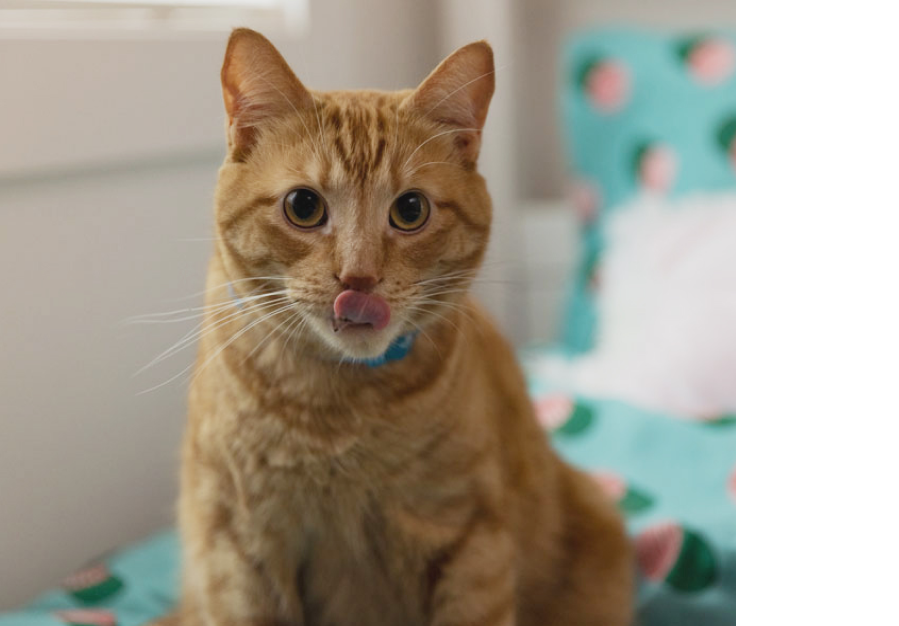
Signs your cat may have a digestive issue
The most common signs of cat stomach problems and digestive disorders are soft stools or diarrhoea. You may also notice some or all of the following signs in your cat.




Signs your cat may have a digestive issue
The most common signs of cat stomach problems and digestive disorders are soft stools or diarrhoea. You may also notice some or all of the following signs in your cat.




Examples of common digestive disorders
Digestive upsets can happen for a variety of reasons, and all of them can make your cat feel under the weather. Remember, that diarrhoea can be difficult to spot in cats that toilet outside. If you suspect your cat is having issues it’s worth providing a litter tray so that you can see what’s going on. Below are some of the more common digestive problems we see in cats.
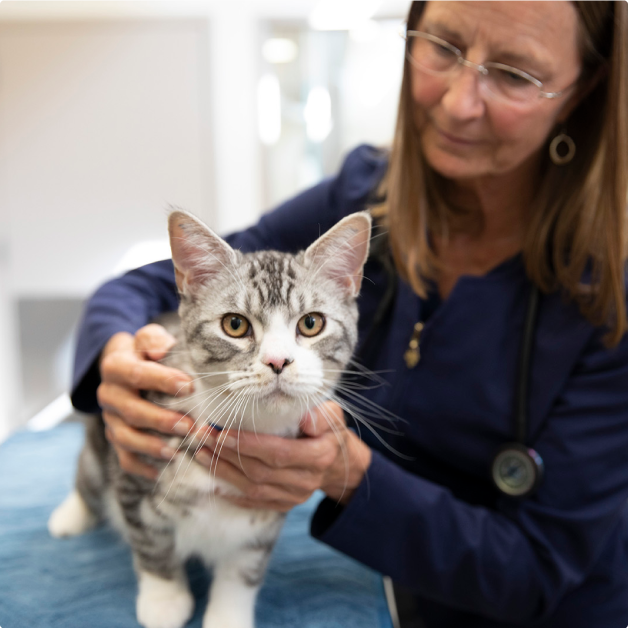

This is the most common cause of an ‘upset stomach’ in cats. It usually consists of vomiting and diarrhoea that begins suddenly. It can be caused by lots of things like eating something unsavoury (or as many cats love to do, eating half a mouse and leaving the rest for us to find!), parasites, viruses and hairballs, to name but a few.
Unlike the sudden onset upset we just mentioned, chronic enteropathies are slower to appear and tend to last a long time. Diarrhoea and weight loss are common signs. Again, it can be caused by many different things such as adverse food reactions, immune reactions and genetics.
The colon is part of the large bowel and when this gets inflamed it’s called colitis. It’s usually very characteristic and most cats show the same signs - looking like they urgently need to have a poop, they might strain to have a poo but not much comes out, and one of the classic signs of colitis is fresh blood and/or slimy mucus in the stools.
For more detailed information, read this article on colitis in cats
The same as in humans, when cats are constipated, they find pooping difficult and they might go to the toilet much less frequently. Constipation can be caused by lots of things. Eating bones, feathers and fur can make the stools hard and difficult to pass, the presence of lots of hair, especially in long-haired cats or a sluggish bowel will also mean that the stools are dry and difficult to shift. Some breeds like the Siamese are more prone to a sluggish bowel than others. This can result in a condition called megacolon.
For more insights, visit this detailed article on cat constipation
This is a complex condition in cats and can be difficult to diagnose with vague signs. These signs include vomiting, lethargy and lack of appetite. As detailed in this article on pancreatitis in cats, it can seem to come and go and often goes hand in hand with other problems like adverse food reactions and inflammatory bowel disease.
Cats can react badly to certain foods for a number of reasons and together we call these adverse food reactions. True food allergies are rarer than people think and they tend to be caused by proteins in foods such as chicken, fish and milk. Food allergies can cause vomiting and diarrhea and also skin issues like itchiness and excessive grooming. For more on managing a cat with a sensitive stomach, see this detailed article.
How can you help?
First, if you suspect your cat is suffering from a digestive disorder, talk to your vet about treatments that may be able to help. You can further help your cat by helping reduce the amount of stress triggers in their environment with some of these suggestions.
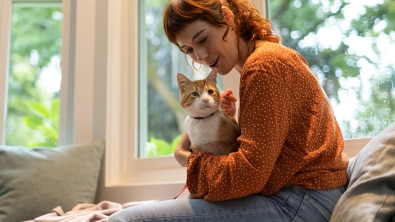

Stick with a routine
Changes to your furry friend’s environment or routine can lead to GI upset. Providing your cat with a calm, safe environment – as well as some regular playtime – can help your cat’s anxiety.
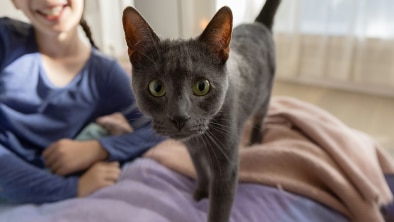

Protecting against fleas and worms
Parasites like roundworms and hookworms can caus GI issues, so if your cat tends to explore the outdoos, make sure they have the proper preventative care.


Consider their nutrition
Foods made with highly digestible ingredients can be gentle on upset tummies. Ask your veterinarian about switching your cat’s food and how to do it without upsetting your cat’s stomach any further.
How can you help?
First, if you suspect your cat is suffering from a digestive disorder, talk to your vet about treatments that may be able to help. You can further help your cat by helping reduce the amount of stress triggers in their environment with some of these suggestions.


Stick with a routine
Changes to your furry friend’s environment or routine can lead to GI upset. Providing your cat with a calm, safe environment – as well as some regular playtime – can help your cat’s anxiety.


Protecting against fleas and worms
Parasites like roundworms and hookworms can caus GI issues, so if your cat tends to explore the outdoos, make sure they have the proper preventative care.


Consider their nutrition
Foods made with highly digestible ingredients can be gentle on upset tummies. Ask your veterinarian about switching your cat’s food and how to do it without upsetting your cat’s stomach any further.
More products
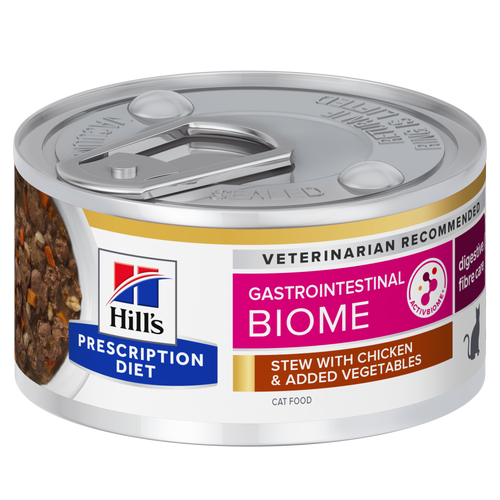
Hill's Prescription Diet Gastrointestinal Biome is a high-fibre wet cat food clinically shown to promote regular healthy stool in as little as 24 hours and help reduce risk of recurrence. Fortified with ActivBiome+ Ingredient Technology to rapidly nourish the gut microbiome and help manage complex GI issues.
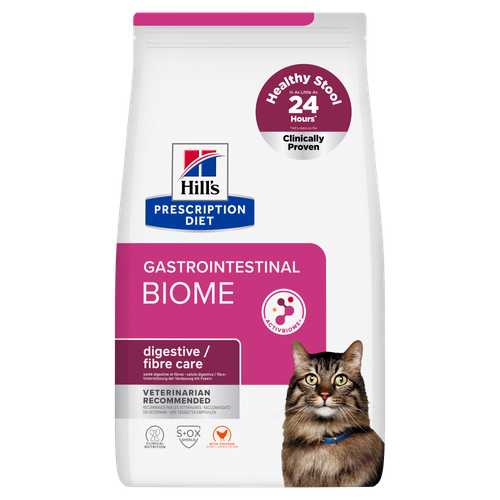
Hill’s Prescription Diet Gastrointestinal Biome is a high-fibre dry cat food clinically shown to promote regular healthy stool in as little as 24 hours and help reduce risk of recurrence. Made with ActivBiome+ Ingredient Technology to rapidly nourish the gut microbiome and help manage complex GI issues.
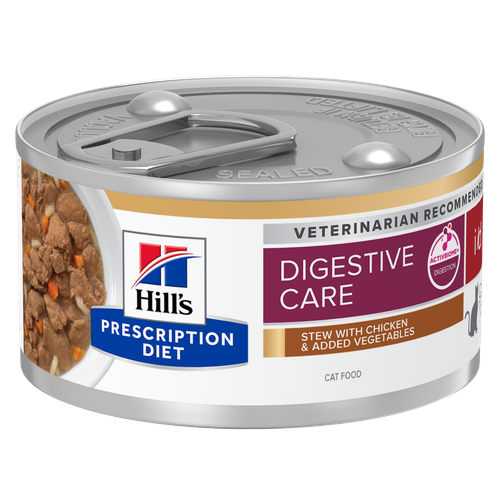
Highly digestible nutrition clinically proven to nourish the gut microbiome and help reduce digestive upsets. Fortified with Hill's ActivBiome+ ingredient technology, a proprietary blend of prebiotics, clinically shown to rapidly nourish the gut microbiome to support digestive health and well-being.
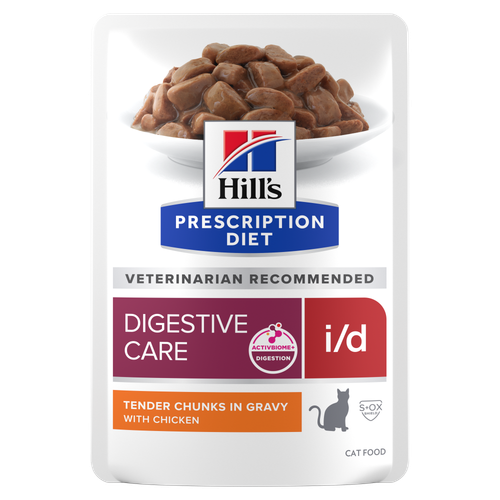
Highly digestible nutrition clinically proven to nourish the gut microbiome and help reduce digestive upsets. Fortified with Hill's ActivBiome+ ingredient technology, a proprietary blend of prebiotics, clinically shown to rapidly nourish the gut microbiome to support digestive health and well-being.
Related articles
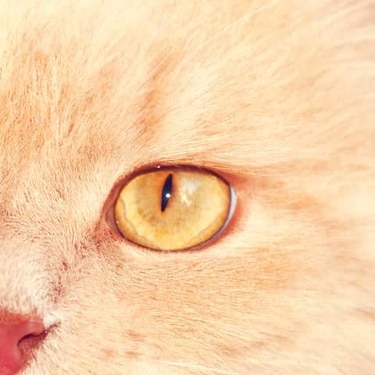
Chocolate is known to be poisonous for dogs, but it can also be toxic for cats. Learn why chocolate is bad for cats & what to do if she's eaten it.
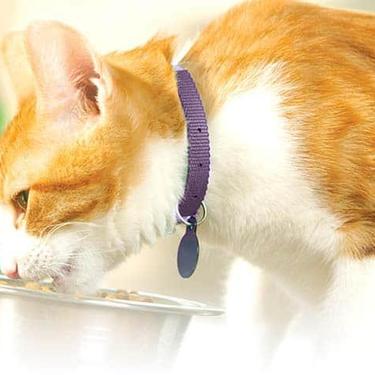
Many human foods are dangerous to cats. Read about 5 of the worst toxic food offenders that can kill your cat - and how much it takes to hurt them.
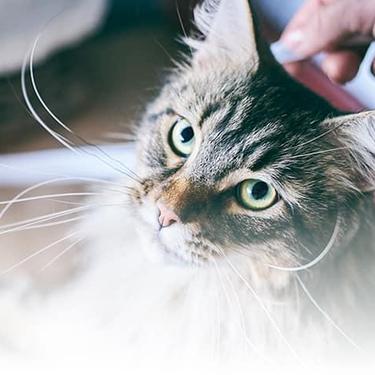
Learn how to make homemade cat treats that are healthy for your pet with this recipe from Hills Pet Nutrition.
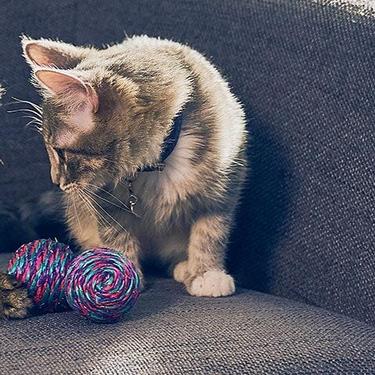
Kittens grow a lot in their first year, so it is important to provide them with the proper nutrients early, so they grow up healthy and strong.

